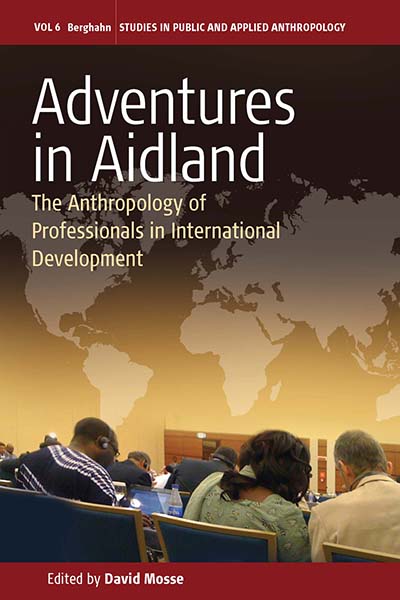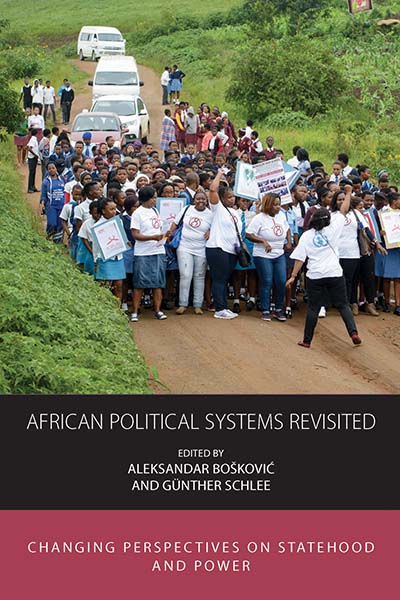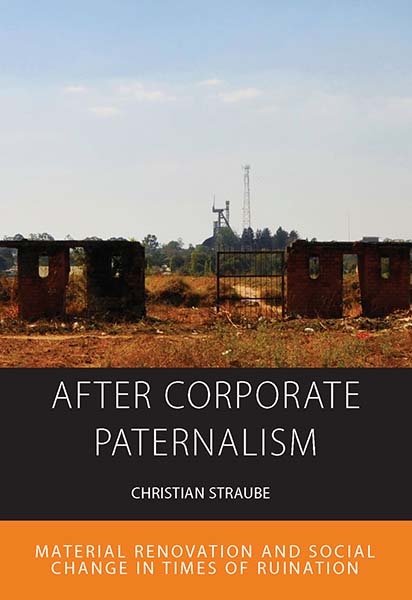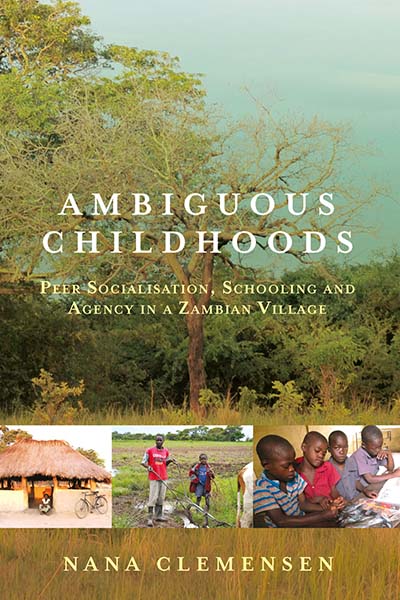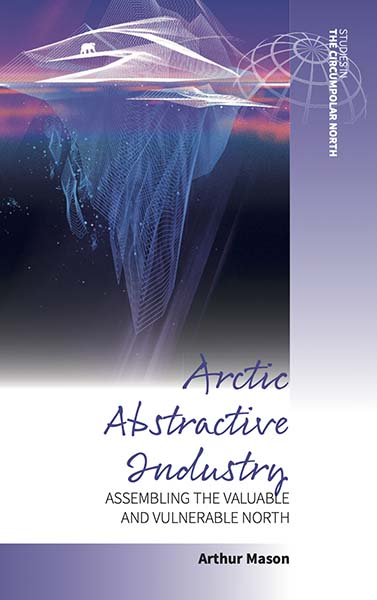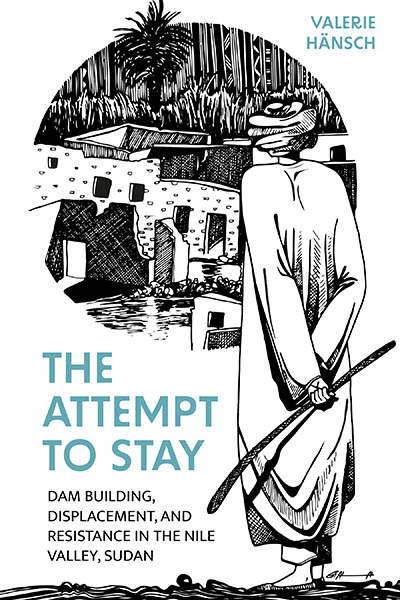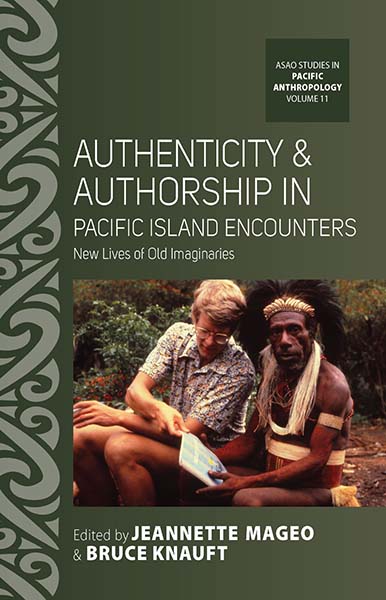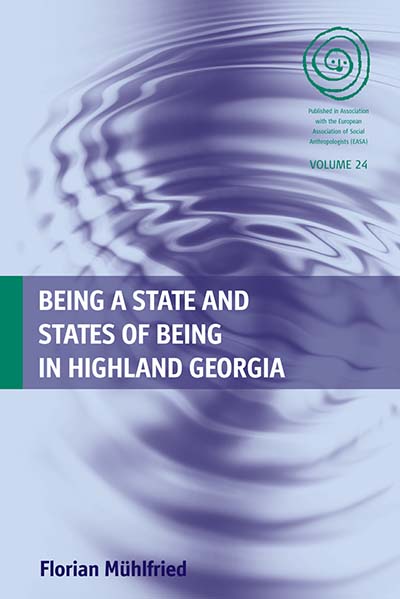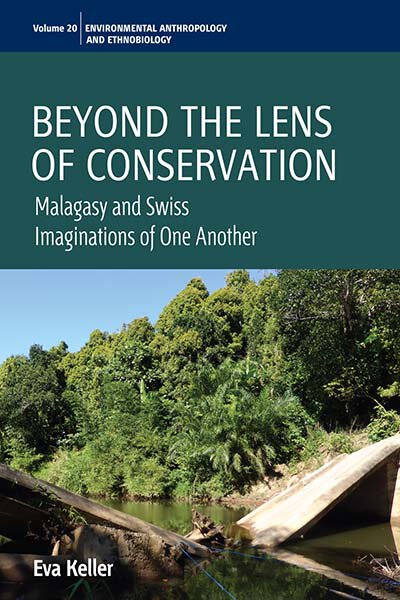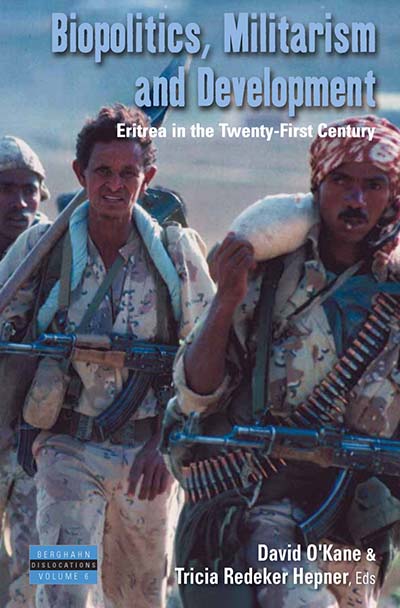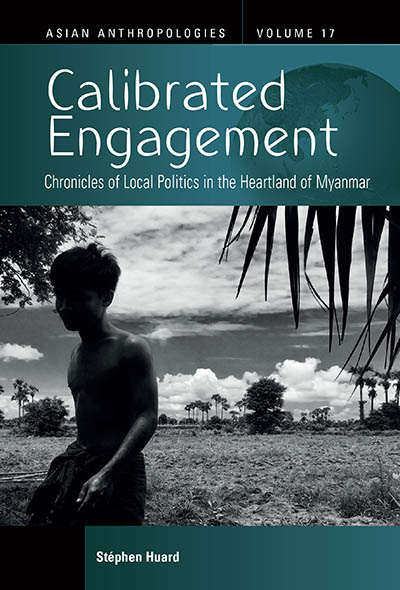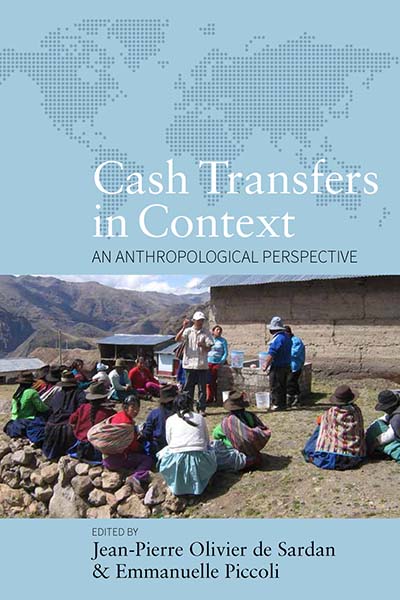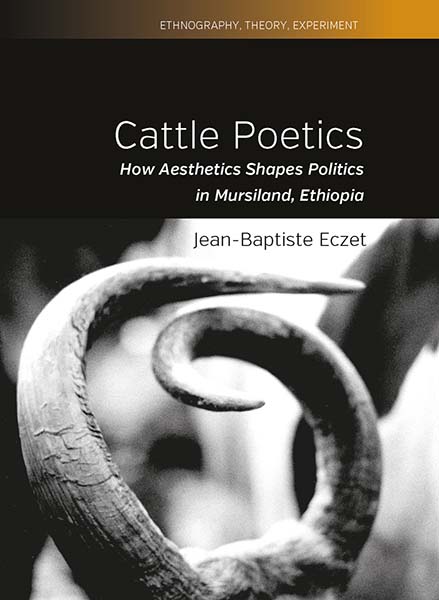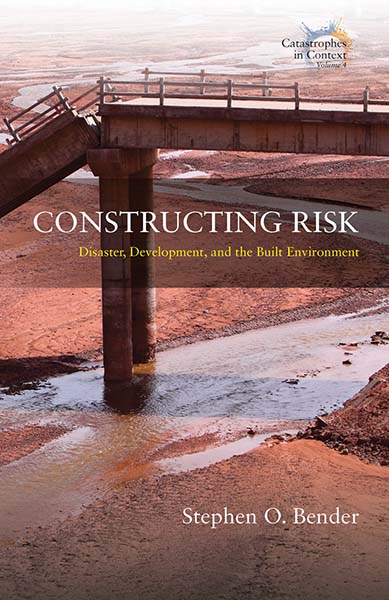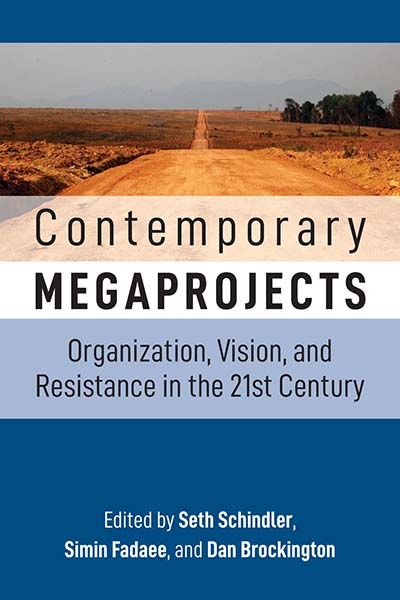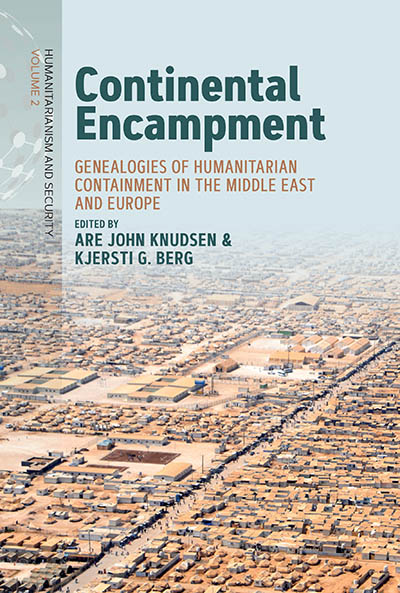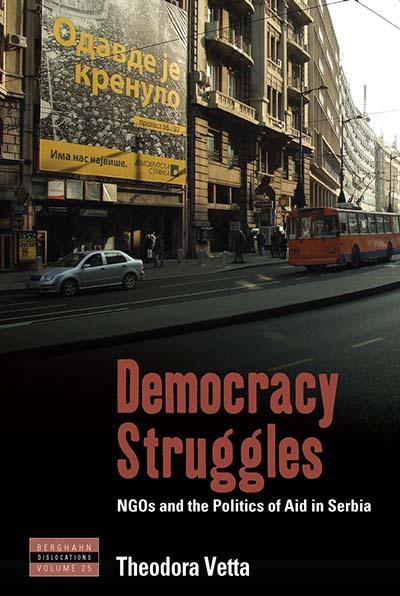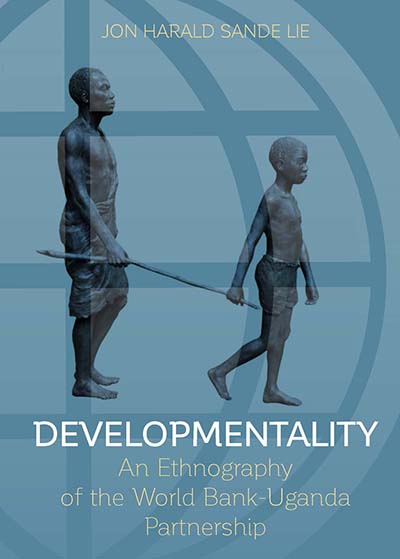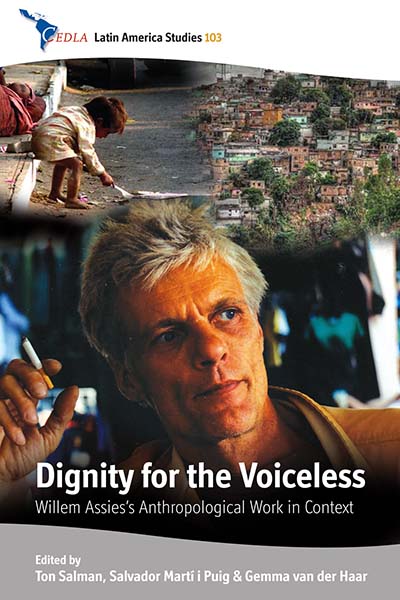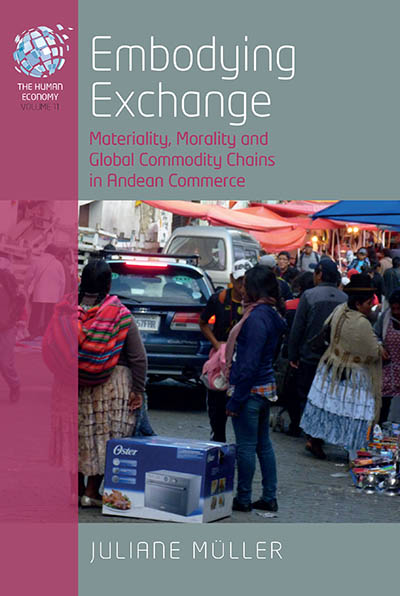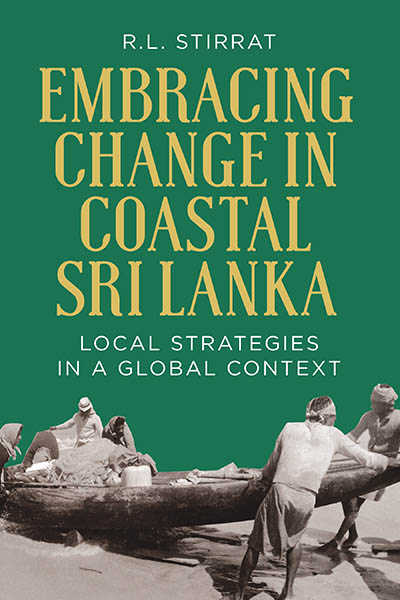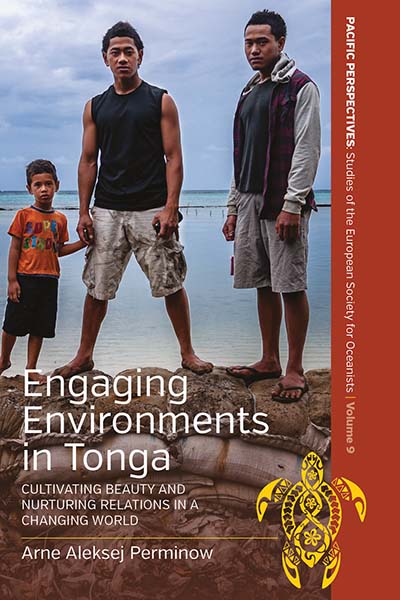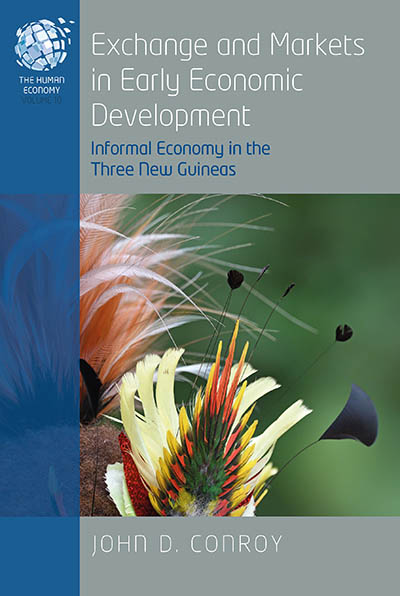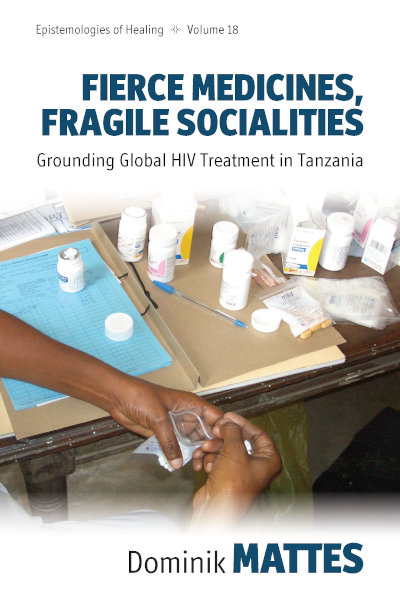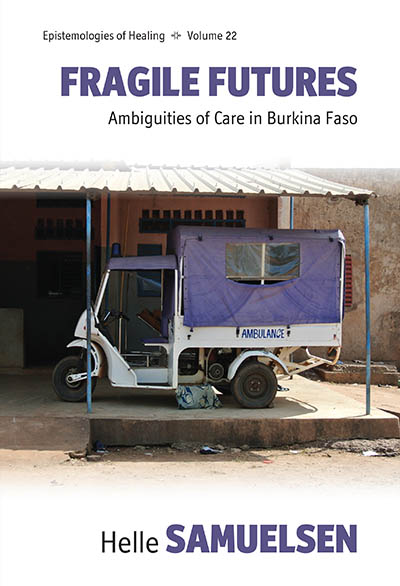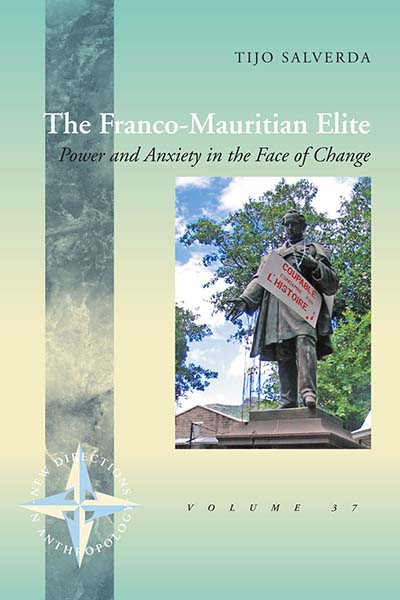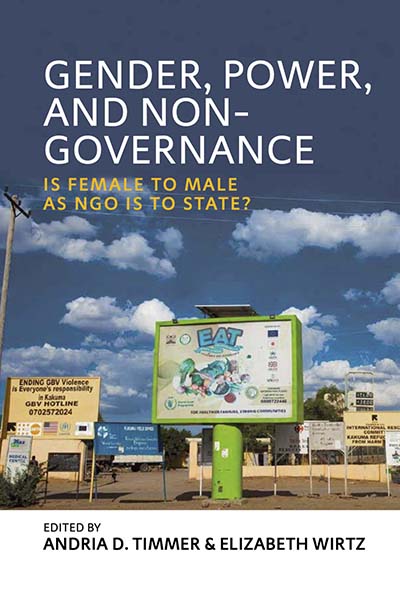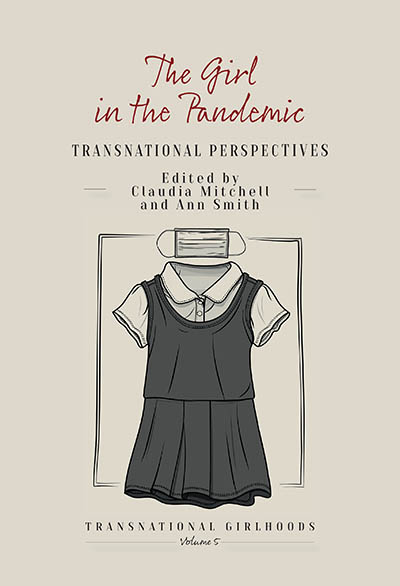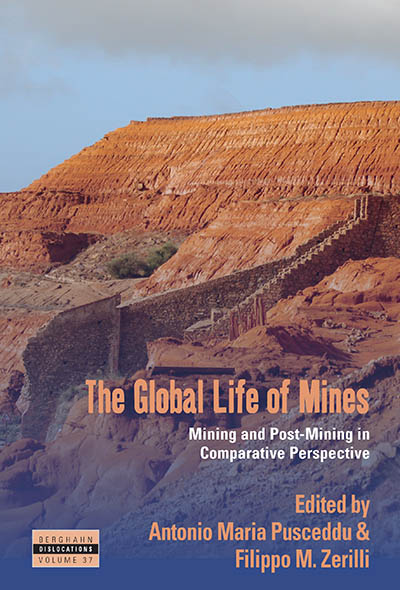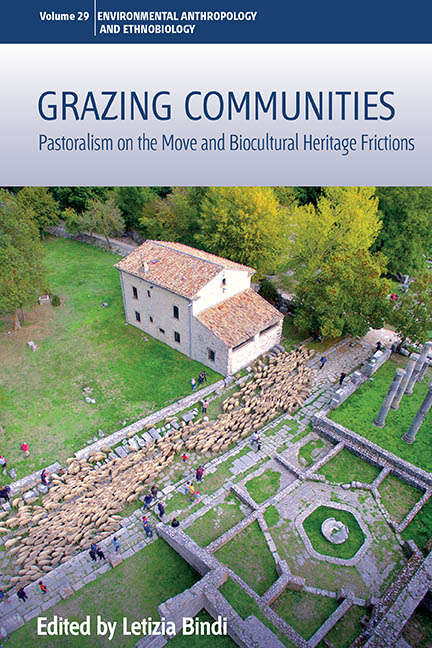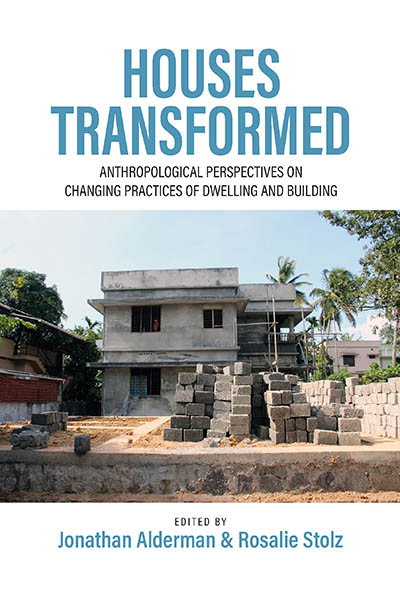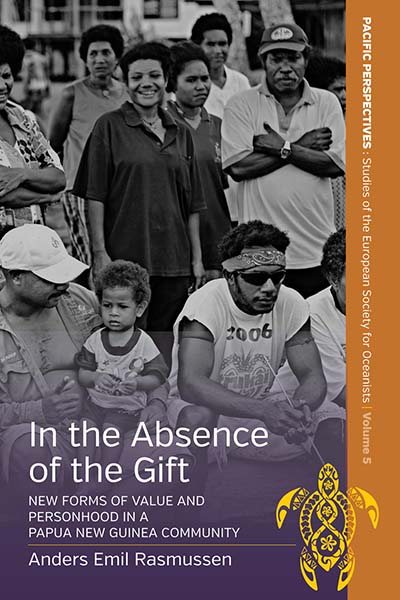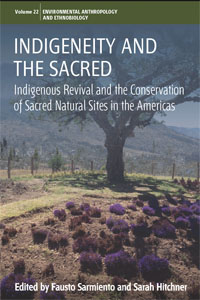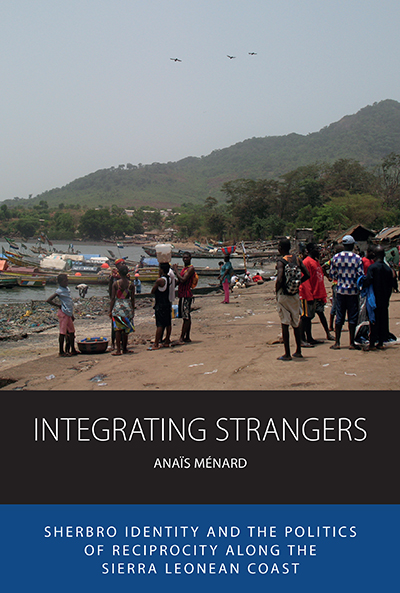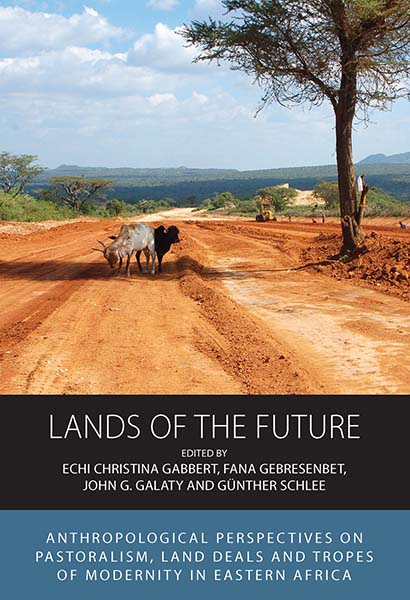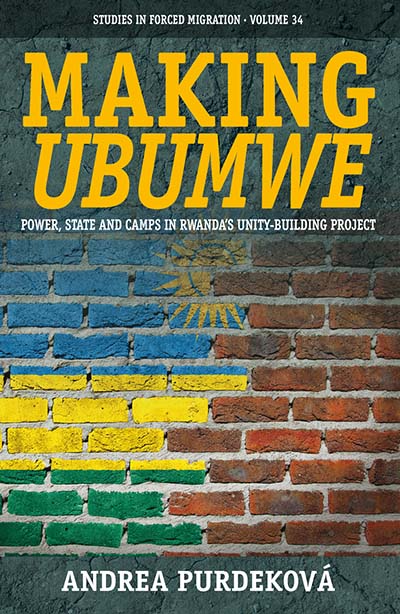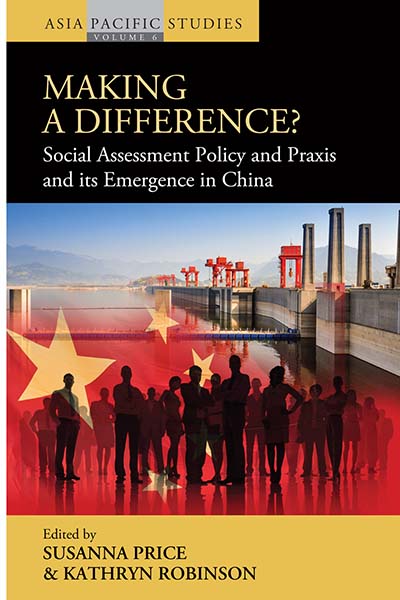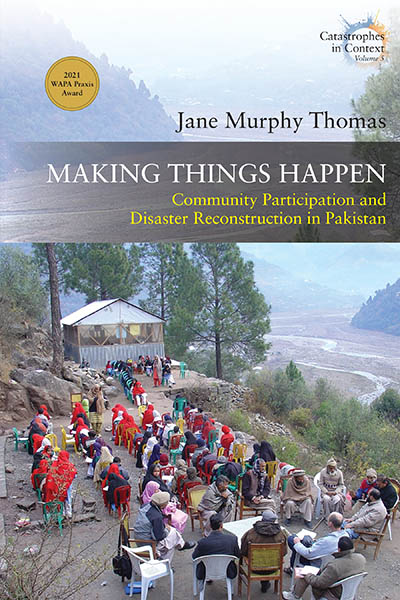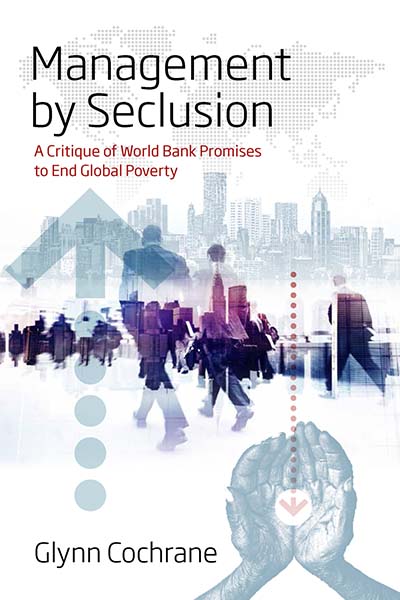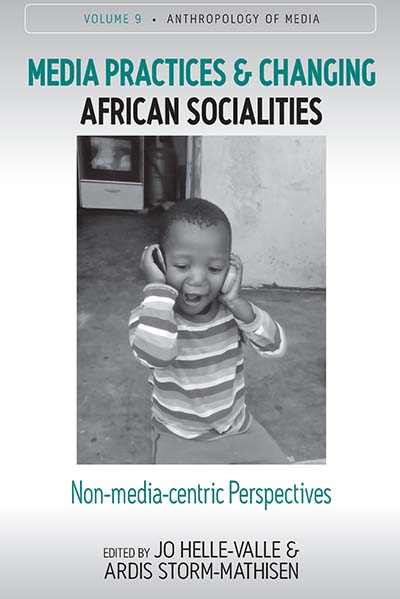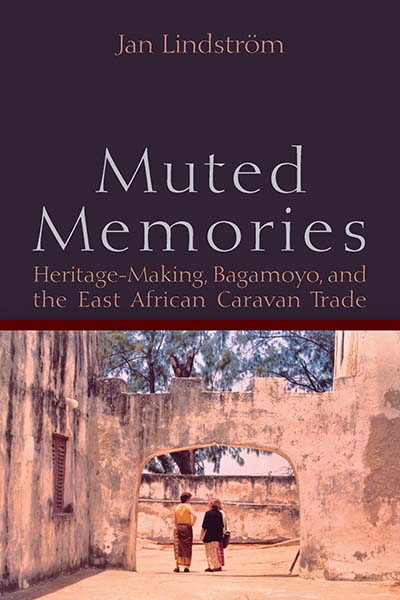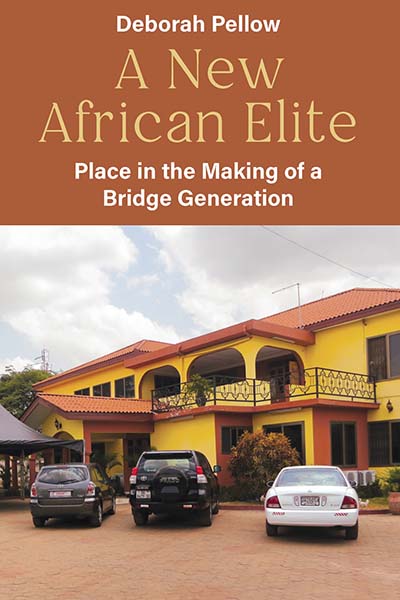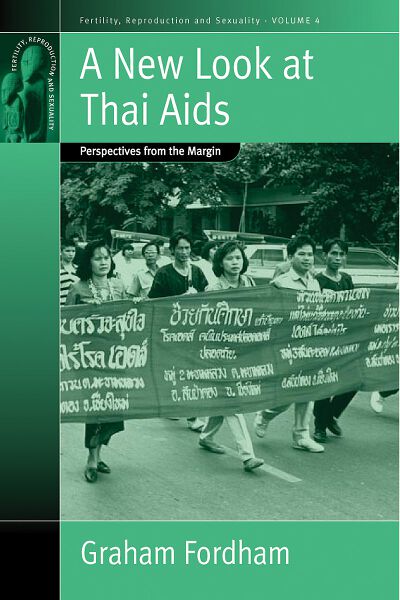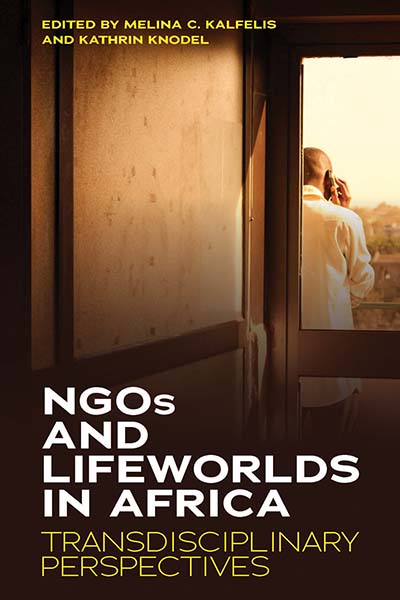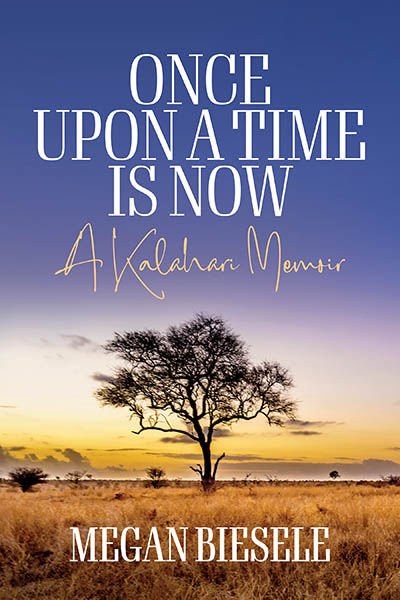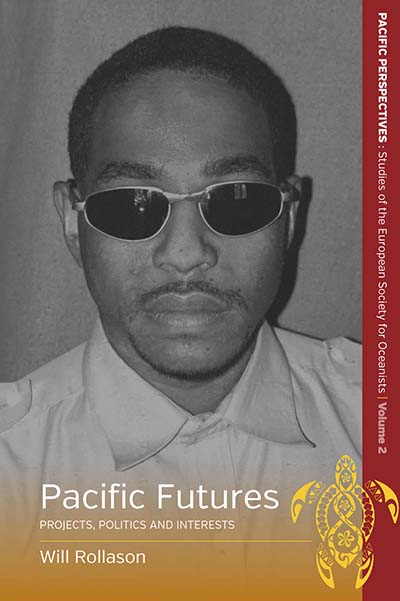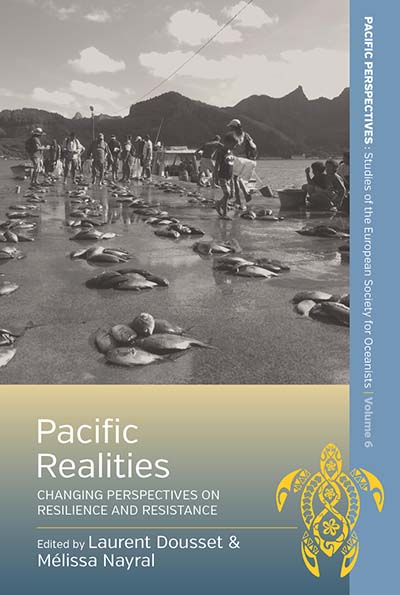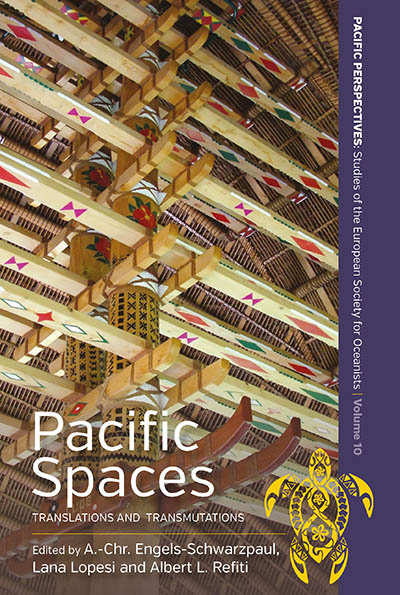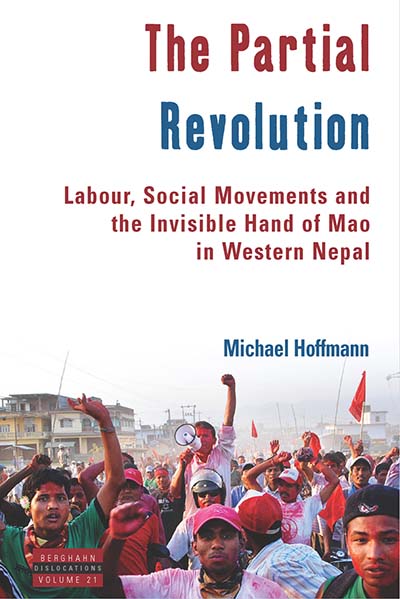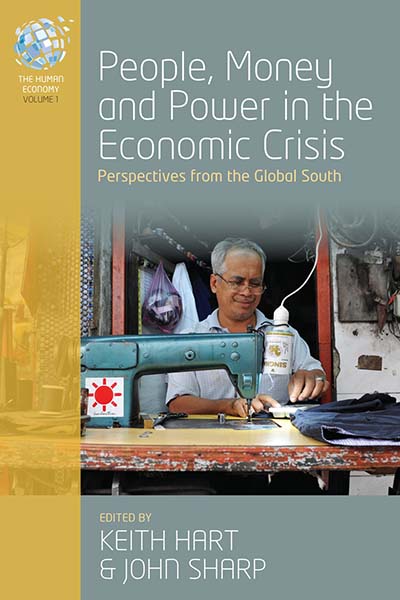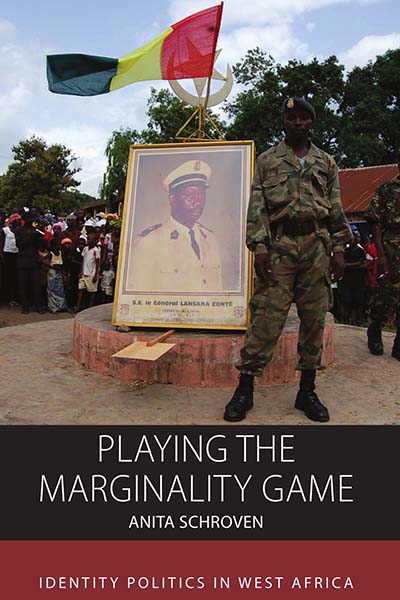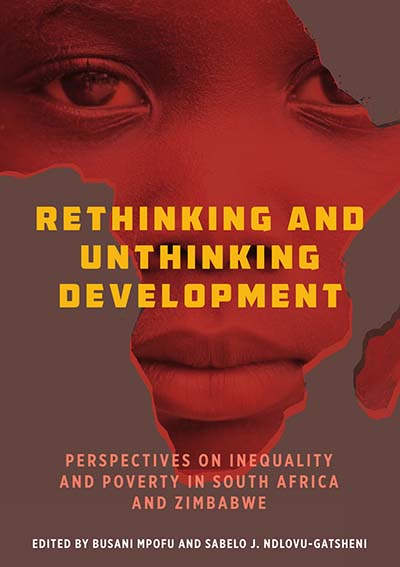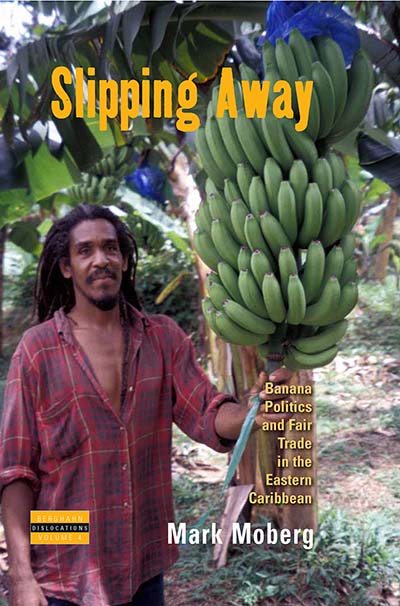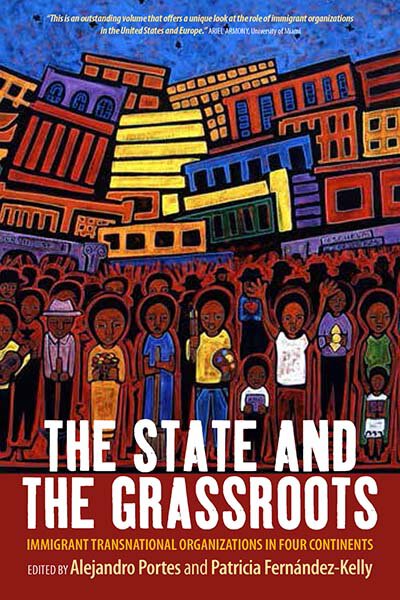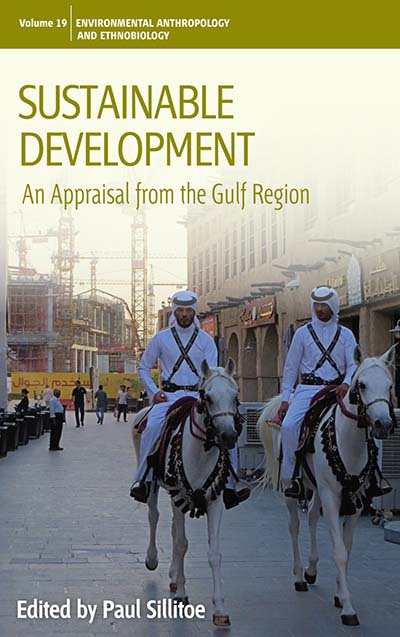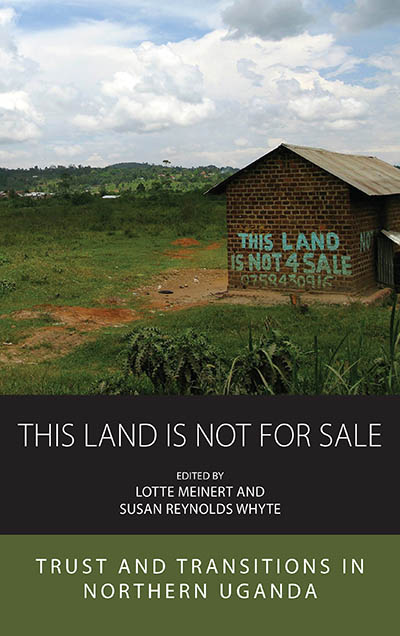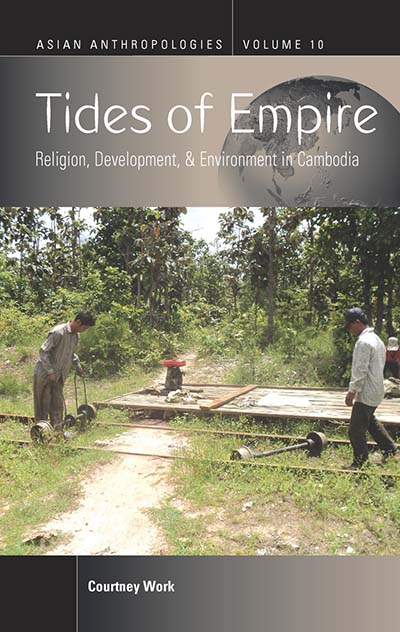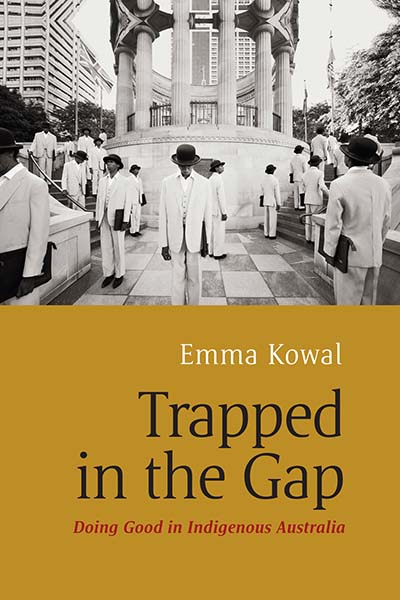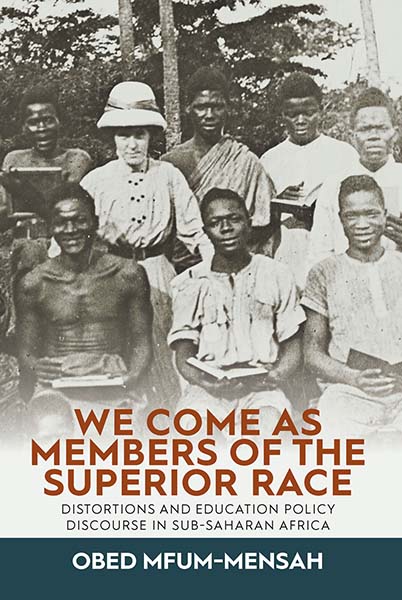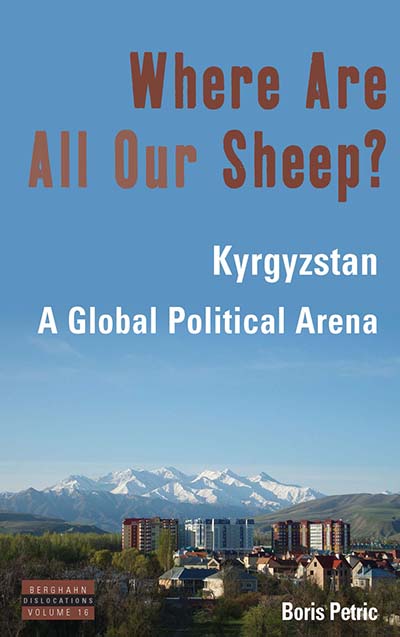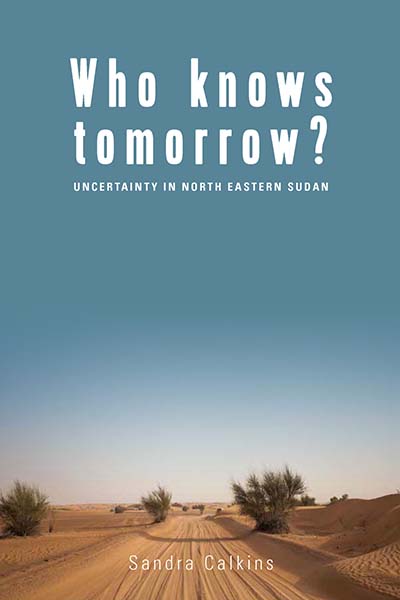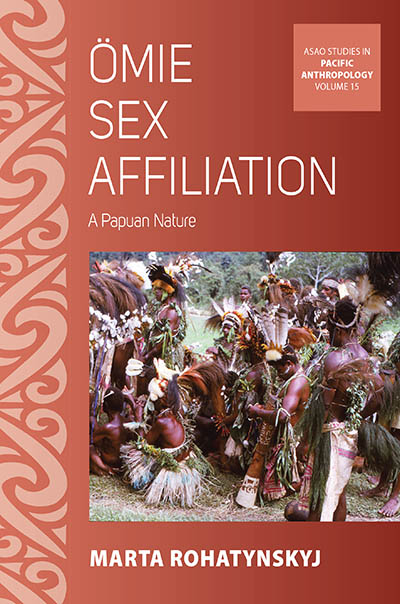Home -> Browse
-

Adventures in Aidland
The Anthropology of Professionals in International Development
Mosse, D. (ed)
Anthropological interest in new subjects of research and contemporary knowledge practices has turned ethnographic attention to a wide ranging variety of professional fields. Among these the encounter with international development has perhaps been longer and more intimate than any of the others. Anthropologists have drawn critical attention to the interfaces and social effects of development’s discursive regimes but, oddly enough, have paid scant attention to knowledge producers themselves, despite anthropologists being among them. This is the focus of this volume. It concerns the construction and transmission of knowledge about global poverty and its reduction but is equally interested in the social life of development professionals, in the capacity of ideas to mediate relationships, in networks of experts and communities of aid workers, and in the dilemmas of maintaining professional identities. Going well beyond obsolete debates about ‘pure’ and ‘applied’ anthropology, the book examines the transformations that occur as social scientific concepts and practices cross and re-cross the boundary between anthropological and policy making knowledge.
Subjects: Applied Anthropology Development Studies
-

African Political Systems Revisited
Changing Perspectives on Statehood and Power
Bošković, A. & Schlee, G. (eds)
Reexamining a classical work of social anthropology, African Political Systems (1940), edited by Fortes and Evans-Pritchard, this book looks at the colonial and academic context from which the work arose, as well as its reception and its subject matter, and looks at how the work can help with analysis of current politics in Africa. This book critically reflects upon the history of anthropology. It also contributes to a political anthropology which is aware of its antecedents, self-reflexive as a discipline, conscious of pitfalls and biases, and able to locate itself in its academic, social and political environment.
Subjects: Political and Economic Anthropology Colonial History Development Studies
Area: Africa
-

After Corporate Paternalism
Material Renovation and Social Change in Times of Ruination
Straube, C.
In this ethnographic study of post-paternalist ruination and renovation, Christian Straube explores social change at the intersection of material decay and social disconnection in the former mine township Mpatamatu of Luanshya, one of the oldest mining towns on the Zambian Copperbelt. Touching on topics including industrial history, colonial town planning, social control and materiality, gender relations and neoliberal structural change, After Corporate Paternalism offers unique insights into how people reappropriate former corporate spaces and transform them into personal projects of renovation, fundamentally changing the characteristics of their community.
Subjects: Anthropology (General) Development Studies Sociology
Area: Africa
-

Ambiguous Childhoods
Peer Socialisation, Schooling and Agency in a Zambian Village
Clemensen, N.
Growing up with social and economic upheaval in the peripheries of global neoliberalism, children in rural Zambia are presented with diverging social and moral protocols across homes, classrooms, church halls, and the streets. Mostly unmonitored by adults, they explore the ambiguities of adult life in playful interactions with their siblings and kin across gender and age. Drawing on rich linguistic-ethnographic details of such interactions combined with observations of school and household procedures, the author provides a rare insight into the lives, voices, and learning paths of children in a rural African setting.
Subjects: Anthropology (General) Sociology Development Studies Educational Studies
Area: Africa
-

Arctic Abstractive Industry
Assembling the Valuable and Vulnerable North
Mason, A. (ed)
Through diverse engagements with natural resource extraction and ecological vulnerability in the contemporary Arctic, contributors to this volume apprehend Arctic resource regimes through the concept of abstraction. Abstraction refers to the creation of new material substances and cultural values by detaching parts from existing substances and values. The abstractive process differs from the activity of extractive industries by its focus on the conceptual resources that conceal processes of exploitation associated with extraction. The study of abstraction can thus help us attune to the formal operations that make appropriations of value possible while disclosing the politics of extraction and of its representation.
Subjects: Anthropology (General) Environmental Studies (General) Development Studies Sustainable Development Goals
Area: Circumpolar
-

Arctic Silk Roads
An Anthropology of the Unbuilt
Magnani, N. & Magnani, M. (Eds.)
As climate change accelerates, melting sea ice is fueling the global imagination and geopolitical anticipation of the Arctic region’s accessible transport routes and possibilities for resource extraction. “Silk Roads” are being conjured across the Circumpolar North, both as official Arctic and infrastructural policy, and as broader visions of global connectivity with other markets. Following the myriad ways that local economies and agencies are proliferating around the anticipation of large-scale infrastructural corridors and their often-unrealized arteries, Arctic Silk Roads examines the different conditions under which top-down infrastructural dreams facilitate or constrain individual agencies.
Subjects: Political and Economic Anthropology Environmental Studies (General) Development Studies Sustainable Development Goals
Area: Circumpolar
-

The Attempt to Stay
Dam Building, Displacement, and Resistance in the Nile Valley, Sudan
Hänsch, V.
The construction of the Merowe Dam along the Nile in northern Sudan flooded local villages and forced thousands of inhabitants to flee to higher ground. Despite the radical social and environmental transformations and an uncertain future, the Manasir have tried to continue their peasant way of life and resisted relocating to state-run resettlement schemes. Rather than focusing on migration and resettlement, the author follows the people’s attempts to preserve their homeland and have meaningful lives along the emerging reservoir. The book grapples with the fundamental question of how to re-establish life in a world that is falling apart.
Subjects: Political and Economic Anthropology Development Studies Environmental Studies (General) Sustainable Development Goals
Area: Africa
-

Authenticity and Authorship in Pacific Island Encounters
New Lives of Old Imaginaries
Mageo, J. & Knauft, B. (eds)
The insular Pacific is a region saturated with great cultural diversity and poignant memories of colonial and Christian intrusion. Considering authenticity and authorship in the area, this book looks at how these ideas have manifested themselves in Pacific peoples and cultures. Through six rich complementary case studies, a theoretical introduction, and a critical afterword, this volume explores authenticity and authorship as “traveling concepts.” The book reveals diverse and surprising outcomes which shed light on how Pacific identity has changed from the past to the present.
Subjects: Anthropology (General) Development Studies
Area: Asia-Pacific
-

Being a State and States of Being in Highland Georgia
Mühlfried, F.
The highland region of the republic of Georgia, one of the former Soviet Socialist Republics, has long been legendary for its beauty. It is often assumed that the state has only made partial inroads into this region, and is mostly perceived as alien. Taking a fresh look at the Georgian highlands allows the author to consider perennial questions of citizenship, belonging, and mobility in a context that has otherwise been known only for its folkloric dimensions. Scrutinizing forms of identification with the state at its margins, as well as local encounters with the erratic Soviet and post-Soviet state, the author argues that citizenship is both a sought-after means of entitlement and a way of guarding against the state. This book not only challenges theories in the study of citizenship but also the axioms of integration in Western social sciences in general.
Subjects: Anthropology (General) Mobility Studies Development Studies
Area: Central/Eastern Europe
-

Beyond the Lens of Conservation
Malagasy and Swiss Imaginations of One Another
Keller, E.
The global agenda of Nature conservation has led to the creation of the Masoala National Park in Madagascar and to an exhibit in its support at a Swiss zoo, the centerpiece of which is a mini-rainforest replica. Does such a cooperation also trigger a connection between ordinary people in these two far-flung places? The study investigates how the Malagasy farmers living at the edge of the park perceive the conservation enterprise and what people in Switzerland see when looking towards Madagascar through the lens of the zoo exhibit. It crystallizes that the stories told in either place have almost nothing in common: one focuses on power and history, the other on morality and progress. Thus, instead of building a bridge, Nature conservation widens the gap between people in the North and the South.
Subjects: Anthropology (General) Environmental Studies (General) Development Studies Political and Economic Anthropology
Areas: Africa Europe
-

Biopolitics, Militarism, and Development
Eritrea in the Twenty-First Century
O'Kane, D. & Hepner, T. R. (eds)
Bringing together original, contemporary ethnographic research on the Northeast African state of Eritrea, this book shows how biopolitics - the state-led deployment of disciplinary technologies on individuals and population groups - is assuming particular forms in the twenty-first century. Once hailed as the “African country that works,” Eritrea’s apparently successful post-independence development has since lapsed into economic crisis and severe human rights violations. This is due not only to the border war with Ethiopia that began in 1998, but is also the result of discernible tendencies in the “high modernist” style of social mobilization for development first adopted by the Eritrean government during the liberation struggle (1961–1991) and later carried into the post-independence era. The contributions to this volume reveal and interpret the links between development and developmentalist ideologies, intensifying militarism, and the controlling and disciplining of human lives and bodies by state institutions, policies, and discourses. Also assessed are the multiple consequences of these policies for the Eritrean people and the ways in which such policies are resisted or subverted. This insightful, comparative volume places the Eritrean case in a broader global and transnational context.
Subjects: Peace and Conflict Studies Development Studies Anthropology (General)
Area: Africa
-

Calibrated Engagement
Chronicles of Local Politics in the Heartland of Myanmar
Huard, S.
For decades, the heartland of Myanmar has been configured as a pacified space under military surveillance. A closer look reveals how politics is enacted at distance with the state. Calibrated Engagement weaves together ethnography and history to chronicle the transformation of rural politics in Anya, the dry lands of central Myanmar. The book presents situations as varied as local elections, inheritance transmissions, land conflicts and ceremonies, to show that politics is about how people calibrate the way they engage with each other.
Subjects: Political and Economic Anthropology Development Studies
Area: Asia
-

Capitalism and Catastrophe
A Critical Disaster Studies Manifesto
Swamy, R.
Synthesizing critical perspectives on the impact of disasters with regard to social inequality, this book brings together key insights from political ecology and historical materialism. Querying assumptions about the “normal” conditions of life, it examines the exploitative structures and practices that shape everyday life using theoretical approaches such as rhythmanalysis, metabolic rift theory, and conjunctural analysis. While focusing on enduring historical processes that foster unequal social and ecological relationships in the present era, this book argues for a more expansive consideration of disasters, including within its scope catastrophes associated with structural violence, social conflict, war and destitution.
Subjects: Political and Economic Anthropology Sociology Development Studies Sustainable Development Goals
-

Cash Transfers in Context
An Anthropological Perspective
Olivier de Sardan, J.-P. & Piccoli, E. (eds)
Marginal in status a decade ago, cash transfer programs have become the preferred channel for delivering emergency aid or tackling poverty in low- and middle-income countries. While these programs have had positive effects, they are typical of top-down development interventions in that they impose on local contexts standardized norms and procedures regarding conditionality, targeting, and delivery. This book sheds light on the crucial importance of these contexts and the many unpredicted consequences of cash transfer programs worldwide - detailing how the latter are used by actors to pursue their own strategies, and how external norms are reinterpreted, circumvented, and contested by local populations.
Subjects: Anthropology (General) Development Studies Political and Economic Anthropology
-

Cattle Poetics
How Aesthetics Shapes Politics in Mursiland, Ethiopia
Eczet, J.-B.
Loving cows, then killing them. The relation with cattle in Mursi country is shaped by the dichotomy between the value given to it during life and the death imposed upon it. The killing of cattle may be brief and inflicted with few words, but it is preceded by a series of intense aesthetic practices, such as body painting and adornments, colour poetics, poems and oratory art. This book investigates the link between the nurturing and killing of cattle with Mursi daily life and finds that these rituals cut across pastoralism, social organisation and politics in forming the very fabric of Mursi society.
Subjects: Anthropology (General) Cultural Studies (General) Development Studies
Area: Africa
-

Colonial Intervention and Destabilization of African Identities
Contours of Trusteeship and Organized Infantilism in Sub-Saharan Africa
Mfum-Mensah, O.
External forces and African elites impose trusteeship practices on Africans to construct and consolidate hierarchical power relations in African societies that infantilize Africans. They employ “trusteeship” and “organized infantilism” as two-pronged colonial intervention tools to keep Africans in subordinated positions by accepting and internalizing those practices as part of the “normal order of things.” This book takes an interdisciplinary approach for examining these different forms of power relations that exploit and dispossess African societies of their resources to accumulate their own wealth.
Subjects: Political and Economic Anthropology Sociology Development Studies
Area: Africa
-

Conservation and Mobile Indigenous Peoples
Displacement, Forced Settlement and Sustainable Development
Chatty, D. & Colchester, M. (eds)
The second edition of this remarkable volume updates the immense advances in policy and soft international law with regards to the rights of mobile indigenous peoples in conservation.
The contributors to this book examine the interface between conservation and indigenous communities who are forced to move or settle elsewhere to accommodate environmental policies and biodiversity concerns. The case studies investigate successful and not so successful community-managed projects in Africa, the Middle East, South and SouthEastern Asia, Australia and Latin America.
Subjects: Refugee and Migration Studies Environmental Studies (General) Development Studies Sustainable Development Goals
Areas: Africa Asia Middle East & Israel
-

Constructing Risk
Disaster, Development, and the Built Environment
Bender, S. O.
Reviewing current policies and practices, the book assesses the financial, economic and physical risk of building in hazardous areas, and looks at how societies approach economic development while trying to create a more resilient built environment in spite of the dangers. It examines the vulnerability of economic and social infrastructure to natural hazard events, looks at policies which imperil infrastructure, and proposes new development approaches to be undertaken by sovereign states, international development banks, NGOs, and bilateral aid agencies.
Subjects: Environmental Studies (General) Development Studies Political and Economic Anthropology Sustainable Development Goals
-

Contemporary Megaprojects
Organization, Vision, and Resistance in the 21st Century
Schindler, S., Fadaere, S., Brockington, D. (eds)
Contemporary megaprojects have evolved from the discreet, modernist projects undertaken in the past by centralized authorities to encompass everything from large-scale construction to space exploration. Contemporary Megaprojects explores how these projects have been impacted by cutting-edge technology, the private sector, and the processes of decentralization and dematerialization. With case studies ranging from mega-plantations in Southeast Asia to ocean mapping to sports events, the contributions in this collected volume demonstrate the increasing ambition and pervasiveness of these projects, as well as their significant impact on both society and the environment.
Subjects: Development Studies Environmental Studies (General) Cultural Studies (General) Sustainable Development Goals
-

Continental Encampment
Genealogies of Humanitarian Containment in the Middle East and Europe
Knudsen, A. J. & Berg, K. G. (eds)
During the past decade, Syria’s displacement crisis has made the Middle East one of the world’s foremost refugee-hosting regions. The measures to prevent refugees and migrants from leaving the region, and returning those who do, has made the region a zone of containment where millions remain displaced. The volume explores responses to mass migration and traces the genealogy of humanitarian containment from the Ottoman Empire and the emergence of the first refugee camps to the present-day displacement ‘crises’ and the re-bordering of Europe.
Subjects: Anthropology (General) Refugee and Migration Studies Development Studies
Areas: Middle East & Israel Europe
-

Democracy Struggles
NGOs and the Politics of Aid in Serbia
Vetta, T.
Tracing the boom of local NGOs since the 1990s in the context of the global political economy of aid, current trends of neoliberal state restructuring, and shifting post-Cold War hegemonies, this book explores the “associational revolution” in post-socialist, post-conflict Serbia. Looking into the country’s “transition” through a global and relational analytical prism, the ethnography unpacks the various forms of dispossession and inequality entailed in the democracy-promotion project.
Subjects: Anthropology (General) Development Studies Political and Economic Anthropology
Area: Central/Eastern Europe
-

Developmentality
An Ethnography of the World Bank-Uganda Partnership
Sande Lie, J. H.
Drawing on ethnographic fieldwork within the World Bank and a Ugandan ministry, this book critically examines how the new aid architecture recasts aid relations as a partnership. While intended to alter an asymmetrical relationship by fostering greater recipient participation and ownership, this book demonstrates how donors still seek to retain control through other indirect and informal means. The concept of developmentality shows how the World Bank’s ability to steer a client’s behavior is disguised by the underlying ideas of partnership, ownership, and participation, which come with other instruments through which the Bank manipulates the aid recipient into aligning with its own policies and practices.
Subjects: Development Studies Anthropology (General)
Area: Africa
-

Dignity for the Voiceless
Willem Assies's Anthropological Work in Context
Salman, T., Marti i Puig, S., & Haar, G. van der (eds)
Willem Assies died in 2010 at the age of 55. The various stages of his career as a political anthropologist of Latin American illustrate how astute a researcher he was. He had a keen eye for the contradictions he observed during his fieldwork but also enjoyed theoretical debate. A distrust of power led him not only to attempt to understand “people without voice” but to work alongside them so they could discover and find their own voice. Willem Assies explored the messy, often untidy daily lives of people, with their inconsistencies, irrationalities, and passions, but also with their hopes, sense of beauty, solidarity, and quest for dignity. This collection brings together some of Willem Assies’s best, most fascinating, and still highly relevant writings.
Subjects: Anthropology (General) Development Studies
Area: Latin America and the Caribbean
-

Embodying Exchange
Materiality, Morality and Global Commodity Chains in Andean Commerce
Müller, J.
Addressing the infrastructural, social and legal complexities of a global commodity chain, this book uses an ethnographic analysis of the encounter between multinational corporations and popular traders in the Bolivian Andes. It offers a situated account of the everyday work of chain (un)making, and practices of translation, accommodation and contention. It highlights traders’ collective action, understanding of economic concepts and regulatory principles, and traces the circulation of goods and money beyond market exchange. All in all, it aims to comprehend the reproduction of the native trading system amid global connections, and to humanize our understanding of the economy by grounding it in everyday life, bottom-up socio-material infrastructures and morality.
Subjects: Political and Economic Anthropology Development Studies
Area: Latin America and the Caribbean
-

Embracing Change in Coastal Sri Lanka
Local Strategies in a Global Context
Stirrat, R. L.
Focused on social change in a coastal village in Sri Lanka, this book emphasizes processes over structures, based on the fundamental premise that society is defined by change rather than stasis. In the village, change emerged as a response to broader economic and political forces, yet the people were far from passive victims of these external influences. Instead, they actively engaged with shifting circumstances, seizing new opportunities as they arose. Change was generally perceived in a positive light, reflecting the community’s resilience and adaptability.
Subjects: Development Studies Political and Economic Anthropology
Area: Asia
-

Engaging Environments in Tonga
Cultivating Beauty and Nurturing Relations in a Changing World
Perminow, A. A.
On March 11, 2011, a tsunami warning was issued for Tonga in Polynesia. On the low and small island of Kotu, people were unperturbed in the face of impending catastrophe. The book starts out from the puzzle of peoples’ responses and reactions to this warning as well as their attitudes to a gradual rise of sea level and questions why people seemed so unconcerned about this and the accompanying loss of land. The book is an ethnography of the relationship between people and their environment based on fieldwork over three decades.
Subjects: Anthropology (General) Environmental Studies (General) Development Studies
Area: Asia-Pacific
-

Exchange and Markets in Early Economic Development
Informal Economy in the Three New Guineas
Conroy, J. D.
The idea of an informal economy emerged from, and is a critique of, the ideology of ‘economic development’. It originated from Keith Hart’s recognition of informal economic activity in 1960s Ghana. In the context of four colonialisms – German, British, Australian and Dutch – this book recounts Hart’s effort in 1972 to introduce the informal ‘sector’ into development planning in Papua New Guinea. This was problematic, because ‘the market’ was scarcely institutionalized, and traditional modes of exchange persisted stubbornly. Rather than conforming with post-colonial economic ideology, the subjected people pushed back against imposed bureaucracy to practice informal and hybrid modes of economic activity.
Subjects: Political and Economic Anthropology Development Studies Colonial History
Area: Asia-Pacific
-

Fierce Medicines, Fragile Socialities
Grounding Global HIV Treatment in Tanzania
Mattes, D.
Set in Tanga, a city on the Tanzanian Swahili coast, Dominik Mattes examines the implementation of antiretroviral HIV-treatment (ART) in the area, exploring the manifold infrastructural and social fragilities of treatment provision in public HIV clinics as well as patients’ multi-layered struggles of coming to terms with ART in their everyday lives. Based on extensive ethnographic fieldwork, the book shows that, notwithstanding the massive rollout of ART, providing treatment and living a life with HIV in settings like Tanga continue to entail social, economic, and moral challenges and long-term uncertainties, which contradict the global rhetoric of the “normalization of HIV”.
Subjects: Medical Anthropology Development Studies Sustainable Development Goals
Area: Africa
-

Fragile Futures
Ambiguities of Care in Burkina Faso
Samuelsen, H.
Caring for small children and the family in Burkina Faso is hard work. Although the health infrastructure in Burkina Faso is weak and many citizens feel neglected by the state, Fragile Futures shows that the state continues to play an important role in people’s engagements and hopes for a better future. Based on more than twenty years of research engagement with Burkina Faso, it is an ethnography of how rural citizens address ambiguities of sickness and care and try to secure a decent future for themselves and their families.
Subjects: Anthropology (General) Medical Anthropology Development Studies Sustainable Development Goals
Area: Africa
-

The Franco-Mauritian Elite
Power and Anxiety in the Face of Change
Salverda, T.
Mauritian independence in 1968 marked the end of a regime favorable to the Franco-Mauritians, the island’s white colonial elite. Now, in postcolonial Mauritius, this group is faced with a much more diverse power constellation and often feels in competition with others vying for their privileges. Though this is a clear departure from the colonial heydays, Franco-Mauritians have been able to continue their elite position into the early twenty-first century. This book focuses on the power of white elites still lingering on in postcolonial realities, and with regards to elites and power in general, addresses anew how an elite group aims to prolong its position over time.
Subjects: Anthropology (General) Development Studies
Area: Africa
-

Gender, Power, and Non-Governance
Is Female to Male as NGO Is to State?
Timmer, A. D. & Wirtz, E. (eds)
Using Sherry Ortner’s analogy of Female/Nature, Male/Culture, this volume interrogates the gendered aspects of governance by exploring the NGO/State relationship. By examining how NGOs/States perform gendered roles and actions and the gendered divisions of labor involved in different types of institutional engagement, this volume attends to the ways in which gender and governance constitute flexible, relational, and contingent systems of power. The chapters in this volume present diverse analyses of the ways in which projects of governance both reproduce and challenge binaries.
Subjects: Gender Studies and Sexuality Anthropology (General) Development Studies Sustainable Development Goals
-

The Girl in the Pandemic
Transnational Perspectives
Mitchell, C. & Smith, A. (eds)
As seen in previous pandemics, girls and young women are particularly vulnerable as social issues such as homelessness, mental healthcare, access to education, and child labor are often exacerbated. The Girl in the Pandemic considers what academics, community activists, and those working in local, national, and global NGOs are learning about the lives of girls and young women during pandemics. Drawing from a range of responses during the pandemic including first person narratives, community ethnographies, and participatory action research, this collection offers a picture of how the COVID-19 pandemic played out in eight different countries.
Subjects: Gender Studies and Sexuality Development Studies Sociology Sustainable Development Goals
-

The Global Life of Mines
Mining and Post-Mining in Comparative Perspective
Pusceddu, A. M. & Zerilli, F. M. (eds)
Resource extraction exists in diverse settings across the world and is carried out through different practices. The Global Life of Mines provides a comprehensive framework examining the spatial and temporal relationships between mining and postmining as interrelated and coexisting features within the global minescape. The book brings together scholars from various fields, such as anthropology, geography, sociology and political science, examining ethnographic case studies throughout the Americas (Bolivia, Brazil, Peru, USA), Africa (Democratic Republic of Congo) and Europe (Italy, Arctic Norway and Spain).
Subjects: Political and Economic Anthropology Sociology Development Studies
-

The Good Holiday
Development, Tourism and the Politics of Benevolence in Mozambique
Baptista, J. A.
Drawing on ethnographic research in the village of Canhane, which is host to the first community tourism project in Mozambique, The Good Holiday explores the confluence of two powerful industries: tourism and development, and explains when, how and why tourism becomes development and development, tourism. The volume further explores the social and material consequences of this merging, presenting the confluence of tourism and development as a major vehicle for the exercise of ethics, and non-state governance in contemporary life.
Subjects: Anthropology (General) Development Studies Travel and Tourism
Area: Africa
-

Grazing Communities
Pastoralism on the Move and Biocultural Heritage Frictions
Bindi, L. (ed)
Pastoralism is a diffused and ancient form of human subsistence and probably one of the most studied by anthropologists at the crossroads between continuities and transformations. The present critical discourse on sustainable and responsible development implies a change of practices, a huge socio-economic transformation, and the return of new shepherds and herders in different European regions. Transhumance and extensive breeding are revitalized as a potential resource for inner and rural areas of Europe against depopulation and as an efficient form of farming deeply influencing landscape and functioning as a perfect eco-system service. This book is an occasion to reconsider grazing communities’ frictions in the new global heritage scenario.
Subjects: Anthropology (General) Sociology Development Studies Sustainable Development Goals
Area: Europe
-

Groundwater Politics
Advanced Extractivism and Slow Resistance
Babidge, S.
The mining industry is an expanding socio-ecological and political problem worldwide, not least in Atacameño-Likanantay (Indigenous) territories in the hyper-arid Salar de Atacama, Chile. Groundwater Politics addresses the social, technical and political conditions it calls ‘advanced extractivism’ to reveal how groundwater extraction sustains both ecological damage and mining economies. It richly describes the area's copper and lithium industries as historically linked with Indigenous communities and their ecological and economic futures. Based on over a decade of ethnographic research, the book casts community strategies to control water and territory as 'slow resistance’, the structural and multifaceted practices that generate a material future amid potential resource exhaustion.
Subjects: Environmental Studies (General) Political and Economic Anthropology Development Studies Sustainable Development Goals
Area: Latin America and the Caribbean
-

Houses Transformed
Anthropological Perspectives on Changing Practices of Dwelling and Building
Alderman, J. & Stolz, R. (eds)
Over the decades, there has been a world-wide transformation of so-called ‘vernacular houses’. Based on ethnographic accounts from different regions, Houses Transformed investigates the changing practices of building houses in a transnational context. It explores the intersection of house biographies and social change, the politics of housing design, the social fabrication of aspirational houses, the domestication of concrete and the intersection of materiality and ontology as well as the rhetoric of the vernacular. The volume provides new anthropological pathways to understand the dynamics of dwelling in the 21st century.
Subjects: Anthropology (General) Sociology Development Studies Sustainable Development Goals
-

In the Absence of the Gift
New Forms of Value and Personhood in a Papua New Guinea Community
Rasmussen, A. E.
By adopting ideas like “development,” members of a Papua New Guinean community find themselves continuously negotiating what can be expected of a relative or a community member. Nearly half the people born on the remote Mbuke Islands become teachers, businessmen, or bureaucrats in urban centers, while those who stay at home ask migrant relatives “What about me?” This detailed ethnography sheds light on remittance motivations and documents how terms like “community” can be useful in places otherwise permeated by kinship. As the state withdraws, Mbuke people explore what social ends might be reached through involvement with the cash economy.
Subjects: Anthropology (General) Development Studies Sociology
Area: Asia-Pacific
-

Indigeneity and the Sacred
Indigenous Revival and the Conservation of Sacred Natural Sites in the Americas
Sarmiento, F. & Hitchner, S. (eds)
This book presents current research in the political ecology of indigenous revival and its role in nature conservation in critical areas in the Americas. An important contribution to evolving studies on conservation of sacred natural sites (SNS), the book elucidates the complexity of development scenarios within cultural landscapes related to the appropriation of religion, environmental change in indigenous territories, and new conservation management approaches. Indigeneity and the Sacred explores how these struggles for land, rights, and political power are embedded within physical landscapes, and how indigenous identity is reconstituted as globalizing forces simultaneously threaten and promote the notion of indigeneity.
Subjects: Environmental Studies (General) Development Studies Anthropology (General) Heritage Studies
Areas: North America Latin America and the Caribbean
-

Integrating Strangers
Sherbro Identity and The Politics of Reciprocity along the Sierra Leonean Coast
Ménard, A.
Drawing on an ethnography of Sherbro coastal communities in Sierra Leone, this book analyses the politics and practice of identity through the lens of the reciprocal relations that exist between socio-ethnic groups. Anaïs Ménard examines the implications of the social arrangement that binds landlords and strangers in a frontier region, the Freetown Peninsula, characterized by high degrees of individual mobility and social interactions. She showcases the processes by which Sherbro identity emerged as a flexible category of practice, allowing individuals the possibility to claim multiple origins and perform ethnic crossovers while remaining Sherbro.
Subjects: Anthropology (General) Political and Economic Anthropology Development Studies
Area: Africa
-

Lands of the Future
Anthropological Perspectives on Pastoralism, Land Deals and Tropes of Modernity in Eastern Africa
Gabbert, E. C., Gebresenbet, F., Galaty, J. G., & Schlee, G. (eds)
Rangeland, forests and riverine landscapes of pastoral communities in Eastern Africa are increasingly under threat. Abetted by states who think that outsiders can better use the lands than the people who have lived there for centuries, outside commercial interests have displaced indigenous dwellers from pastoral territories. This volume presents case studies from Eastern Africa, based on long-term field research, that vividly illustrate the struggles and strategies of those who face dispossession and also discredit ideological false modernist tropes like ‘backwardness’ and ‘primitiveness’.
Subjects: Environmental Studies (General) Development Studies Mobility Studies Sustainable Development Goals
Area: Africa
-

Living on Thin Ice
The Gwich'in Natives of Alaska
Dinero, S. C.
The Gwich’in Natives of Arctic Village, Alaska, have experienced intense social and economic changes for more than a century. In the late 20th century, new transportation and communication technologies introduced radically new value systems; while some of these changes may be seen as socially beneficial, others suggest a weakening of what was once a strong and vibrant Native community. Using quantitative and qualitative data gathered since the turn of the millennium, this volume offers an interdisciplinary evaluation of the developments that have occurred in the community over the past several decades.
Subjects: Anthropology (General) Development Studies Urban Studies
Areas: North America Circumpolar
-

Making Ubumwe
Power, State and Camps in Rwanda's Unity-Building Project
Purdeková, A.
Since the end of the Rwandan genocide, the new political elite has been challenged with building a unified nation. Reaching beyond the better-studied topics of post-conflict justice and memory, the book investigates the project of civic education, the upsurge of state-led neo-traditional institutions and activities, and the use of camps and retreats shape the “ideal” Rwandan citizen. Rwanda’s ingando camps offer unique insights into the uses of dislocation and liminality in an attempt to anchor identities and desired political roles, to practically orient and symbolically place individuals in the new Rwandan order, and, ultimately, to create additional platforms for the reproduction of political power itself.
Subjects: Anthropology (General) Refugee and Migration Studies Development Studies
Area: Africa
-

Making a Difference?
Social Assessment Policy and Praxis and its Emergence in China
Price, S. & Robinson, K. (eds)
Social assessment for projects in China is an important emerging field. This collection of essays — from authors whose formative work has influenced the policies that shape practice in development-affected communities — locates recent Chinese experience of the development of social assessment practices (including in displacement and resettlement) in a historical and comparative perspective. Contributors — social scientists employed by international development banks, national government agencies, and sub-contracting groups — examine projects from a practitioner’s perspective. Real-life experiences are presented as case-specific praxis, theoretically informed insight, and pragmatic lessons-learned, grounded in the history of this field of development practice. They reflect on work where economic determinism reigns supreme, yet project failure or success often hinges upon sociopolitical and cultural factors.
Subjects: Development Studies Anthropology (General)
Area: Asia-Pacific
-

Making Things Happen
Community Participation and Disaster Reconstruction in Pakistan
Murphy Thomas, J.
Drawing on the Pakistan Earthquake Reconstruction and Recovery Project (PERRP), this volume explores the sociocultural side of post-disaster infrastructure reconstruction. As the latter is often fraught with delays and even abandonment—one cause being ineffective interactions between construction and local people—PERRP used anthropological and participatory approaches. Along with strong construction management, such approaches led to the rebuilding being completed on time. As disasters are increasing in number and intensity, so too will be the need for reconstruction, for which PERRP has lessons to offer.
Subjects: Applied Anthropology Development Studies Sustainable Development Goals
Area: Asia
-

Management by Seclusion
A Critique of World Bank Promises to End Global Poverty
Cochrane, G.
50 years ago, World Bank President Robert McNamara promised to end poverty. Alleviation was to rely on economic growth, resulting in higher incomes stimulated by Bank loans processed by deskbound Washington staff, trickling down to the poorest. Instead, child poverty and homelessness are on the increase everywhere. In this book, anthropologist and former World Bank Advisor Glynn Cochrane argues that instead of Washington’s “management by seclusion,” poverty alleviation requires personal engagement with the poorest by helpers with hands-on local and cultural skills. Here, the author argues, the insights provided by anthropological fieldwork have a crucial role to play.
Subjects: Anthropology (General) Development Studies Sustainable Development Goals
-

Market and Monastery
Capitalism in Manangi Trade Diaspora
Ratanapruck, P.
In the established historiography of trade in Asia, the emergence of Western trading empires invariably triggered the decline and dispersal of old trading networks. In this transregional ethnographic history of the Manangi, a Buddhist trading community from northern Nepal, Prista Ratanapruck provides counter evidence, elucidating how kinship, social, and religious institutions have facilitated the expansion of Manangi trade across South and Southeast Asia. Expounding on how social and moral values shape capital production, accumulation, and redistribution, Market and Monastery examines the entwining relationship between trade and the Manangi’s pursuit of social and spiritual aspirations, ultimately illuminating an intriguing form of capitalism.
Subjects: Political and Economic Anthropology Development Studies Anthropology (General)
Area: Asia
-

Media Practices and Changing African Socialities
Non-media-centric Perspectives
Helle-Valle, J. & Strom-Mathiesen, A. (eds)
Deriving from innovative new work by six researchers, this book questions what the new media's role is in contemporary Africa. The chapters are diverse - covering different areas of sociality in different countries - but they unite in their methodological and analytical foundation. The focus is on media-related practices, which require engagement with different perspectives and concerns while situating these in a wider analytical context. The contributions to this collection provide fresh ethnographic descriptions of how new media practices can affect socialities in significant but unpredictable ways.
Subjects: Media Studies Anthropology (General) Development Studies
Area: Africa
-

Multidimensional Change in Sudan (1989–2011)
Reshaping Livelihoods, Conflicts and Identities
Casciarri, B., Assal, M.A.M. & Ireton, F. (eds)
Based on fieldwork largely collected during the CPA interim period by Sudanese and European researchers, this volume sheds light on the dynamics of change and the relationship between microscale and macroscale processes which took place in Sudan between the 1980s and the independence of South Sudan in 2011. Contributors’ various disciplinary approaches—socio-anthropological, geographical, political, historical, linguistic—focus on the general issue of “access to resources.” The book analyzes major transformations which affected Sudan in the framework of globalization, including land and urban issues; water management; “new” actors and “new conflicts”; and language, identity, and ideology.
Subjects: Anthropology (General) Development Studies
Area: Africa
-

Muted Memories
Heritage-Making, Bagamoyo, and the East African Caravan Trade
Lindström, J.
In the late nineteenth century, tens of thousands of porters carried ivory every year from the African interior to Bagamoyo, a port town at the Indian Ocean. In the opposite direction, they carried millions of meters of cloth, manufactured in the USA, Europe, and India. This book examines the centrality of the caravan trade, both culturally and economically, to Bagamoyo’s development and cosmopolitan character, while also exploring how this history was silenced when Bagamoyo was instead branded as a slave route town in 2006 in an attempt to qualify it for the UNESCO World Heritage List.
Subjects: Anthropology (General) Heritage Studies Development Studies
Area: Africa
-

A New African Elite
Place in the Making of a Bridge Generation
Pellow, D.
Focusing on a sub-set of the Dagomba of northern Ghana, this book looks at the first generation to go through secondary school in the north. After university and post-graduate education, they relocate to Accra, the capital, hundreds of miles south. They crossed social and physical space and have become cosmopolitan while holding on to tradition and attachment to their home town. This bridge generation are patrons to those living up north. This book charts their path into elite status and argues that they use the tools gained through education and social connections to influence politics back home.
Subjects: Anthropology (General) Mobility Studies Development Studies
Area: Africa
-

A New Look At Thai Aids
Perspectives from the Margin
Fordham, G.
Following the detection of the first HIV infections in the early 1980s, by the 1990s Thailand was routinely depicted as having the world’s fastest moving HIV/AIDS epidemic. However, by the early 2000’s the bulk of scholarly and medical AIDS literature portrayed the epidemic as being largely under control, and claimed that Thai AIDS prevention efforts during the 1990s had been successful. Based on long-term ethnographic research conducted in Northern Thailand this book makes an in-depth study of the social construction of Thailand’s HIV/AIDS epidemic over this period. In addition to his own field research the author draws on an extensive corpus of English and Thai language social science and medical HIV/AIDS literature to examine the modeling of Thailand’s AIDS epidemic, and addresses concepts and issues such as risk groups, risk behaviour, alcohol use, gender and class, masculinity, the scapegoating of female prostitutes and men in the underclass, the reporting of the HIV/AIDS epidemic in Thailand’s indigenous Thai language media, and sexual activity amongst Thai youth. The analysis demonstrates the contribution of anthropology as an interpretative social science, and the use of anthropological theory and research methods, to finding alternative ways of framing the problems of Thai AIDS and of posing new questions that will lead to more effective points of intervention. It emphasises the necessity for critically reflexive approaches that question the ‘taken for granted’ and demonstrates how qualitative research techniques guided by social theory have the potential to take account of local meanings in complex social contexts where traditional values and cultural practices are rapidly transforming due to economic and social change. The book offers a sustained and powerful criticism of the limitations of the normative model of the Thai AIDS epidemic and, in its aim of promoting critically reflexive AIDS research techniques in order to produce a better understanding of issues ‘on the ground’ and hence better health policy and more effective AIDS interventions, speaks not only to the Thai AIDS epidemic but to AIDS epidemics throughout Southeast Asia and elsewhere.
This is the only English language study of Thailand’s HIV/AIDS epidemic to draw on long-term qualitative research in Northern Thailand as well as on a broad range of Thai (and some Khmer language) materials. Its contextualised and subtly nuanced analysis of the AIDS epidemic and of the impact of AIDS control initiatives, in concert with the theoretical and methodological contributions it makes to AIDS research and policy and behavioural interventions, makes it a timely publication of vital interest to scholars in the social sciences, as well as to the members of non-governmental organisations and international organisations working in the HIV/AIDS, health and development fields.
Subjects: Medical Anthropology Development Studies
Area: Asia-Pacific
-

NGOs and Lifeworlds in Africa
Transdisciplinary Perspectives
Kalfelis, M. C. & Knodel, K. (eds)
Non-governmental organizations (NGOs) have become ubiquitous in the development sector in Africa and attracting more academic attention. However, the fact that NGOs are an integral part of the everyday lives of men and women on the continent has been overlooked thus far. In Africa, NGOs are not remote, but familiar players, situated in the midst of cities and communities. By taking a radical empirical stance, this book studies NGOs as a vital part of the lifeworlds of Africans. Its contributions are immersed in the pasts, presents and futures of personal encounters, memories, decision-making and politics.
Subjects: Development Studies Anthropology (General)
Area: Africa
-

Once Upon a Time is Now
A Kalahari Memoir
Biesele, M.
Fifty years after her first fieldwork with Ju/'hoan San hunter-gatherers, anthropologist Megan Biesele has written this exceptional memoir based on personal journals she wrote at the time.
The treasure trove of vivid learning experiences and nightly ponderings she found has led to a memoir of rare value to anthropology students and academics as well as to general readers. Her experiences focus on the long-lived healing dance, known to many as the trance dance, and the intricate beliefs, artistry, and social system that support it.
She describes her immersion in a creative community enlivened and kept healthy by that dance, which she calls "one of the great intellectual achievements of humankind."
From the Preface:
A few years ago I finally got around to looking back into the box of personal field journals I had not opened for over forty years. I found a treasure trove. It was an overwhelming experience. So much that I had forgotten came vividly alive: I laughed, wept, and was terrified all over again at my temerity in taking on what I had taken on. To do justice to the richness of these notebooks, I realized, I would have to do a completely different sort of writing from anything I had ever done before.Subjects: Anthropology (General) Cultural Studies (General) Development Studies
Area: Africa
-

Pacific Futures
Projects, Politics and Interests
Rollason, W. (ed)
The Pacific region presents a huge diversity of cultural forms, which have fuelled some of the most challenging ethnographic work undertaken in the discipline. But this challenge has come at a cost. Culture, often reconfigured as ‘custom’, has often served to trap the people of the Pacific in the past of cultural reproduction, where everything is what it has always been, or worse—outdated, outmoded and destined for modernization.
Pacific Futures asks how our understanding of social life in the Pacific would be different if we approached it from the perspective of the futures which Pacific people dream of, predict or struggle to achieve, not the reproduction of cultural tradition. From Christianity to gambling, marriage to cargo cult, military coups to reflections on childhood fishing trips, the contributors to this volume show how Pacific people are actively shaping their lives with the future in mind.
Subjects: Anthropology (General) Development Studies
Area: Asia-Pacific
-

Pacific Realities
Changing Perspectives on Resilience and Resistance
Dousset, L. & Nayral, M. (eds)
Throughout the Pacific region, people are faced with dramatic changes, often described as processes of “glocalization”; individuals and groups espouse multilayered forms of identity, in which global modes of thinking and doing are embedded in renewed perceptions of local or regional specificities. Consequently, new forms of resistance and resilience – the processes by which communities attempt to regain their original social, political, and economic status and structure after disruption or displacement – emerge. Through case studies from across the Pacific which transcend the conventional “local-global” dichotomy, this volume aims to explore these complex and interwoven phenomena from a new perspective.
Subjects: Anthropology (General) Development Studies Political and Economic Anthropology
Area: Asia-Pacific
-

Pacific Spaces
Translations and Transmutations
Engels-Schwarzpaul, A.-C., Lopesi, L., & Refiti, A. L. (eds)
Delving into Pacific spaces from a variety of disciplinary perspectives and interpretations, this book looks at how the anthropological and architectural can be connected. The contributors to this book – architectural practitioners, architectural and spatial design theorists, anthropologists and historians – show not only how new theoretical perspectives can arise out of comparing aspects specific to one discipline with their equivalents of another, but also demonstrate how a space of emergence is created for something that goes beyond both, enhancing both fields of potentialities.
Subjects: Anthropology (General) Cultural Studies (General) Development Studies
Area: Asia-Pacific
-

The Partial Revolution
Labour, Social Movements and the Invisible Hand of Mao in Western Nepal
Hoffmann, M.
Located in the far-western Tarai region of Nepal, Kailali has been the site of dynamic social and political change in recent history. The Partial Revolution examines Kailali in the aftermath of Nepal’s Maoist insurgency, critically examining the ways in which revolutionary political mobilization changes social relations—often unexpectedly clashing with the movement’s ideological goals. Focusing primarily on the end of Kailali’s feudal system of bonded labor, Hoffmann explores the connection between politics, labor, and Mao’s legacy, documenting the impact of changing political contexts on labor relations among former debt-bonded laborers.
Subjects: Political and Economic Anthropology Development Studies Peace and Conflict Studies
Area: Asia
-

People, Money and Power in the Economic Crisis
Perspectives from the Global South
Hart, K. & Sharp, J. (eds)
The Cold War was fought between “state socialism” and “the free market.” That fluctuating relationship between public power and private money continues today, unfolding in new and unforeseen ways during the economic crisis. Nine case studies -- from Southern Africa, South Asia, Brazil, and Atlantic Africa – examine economic life from the perspective of ordinary people in places that are normally marginal to global discourse, covering a range of class positions from the bottom to the top of society. The authors of these case studies examine people’s concrete economic activities and aspirations. By looking at how people insert themselves into the actual, unequal economy, they seek to reflect human unity and diversity more fully than the narrow vision of conventional economics.
Subjects: Anthropology (General) Development Studies Political and Economic Anthropology
-

Playing the Marginality Game
Identity Politics in West Africa
Schroven, A.
In Guinea, situated against the background of central government struggles, rural elites use identity politics through contemporary political reforms to maintain their privileges and perpetuate a generations-old local social contract that bridges ethnic and religious divides. Simultaneously, administrative reform and national unrest lead to the creative re-combination of sources of authority and practices of legitimate rule. Past periods of colonization, socialism and authoritarian regime are reflected in contemporary struggles to make sense of participatory democracy and the future of the embattled Guinean national state.
Subjects: Anthropology (General) Sociology Development Studies
Area: Africa
-

Prophetic Histories
Time, Theology, and Theocracy in Solomon Islands
Timmer, J.
On Malaita in Solomon Islands, an evangelical Israelite-inspired movement centers on a distinctive time-consciousness that reads the historical past and present as prophetic signs of an imminent future. This book examines how these ‘prophetic histories’ interweave biblical narrative, theological reflection, local accounts, kastom practice, spiritual journeys and Old-Testament political theory. Michael Maeliau, the movement’s foremost leader, casts the resulting stories as divine messages. His theological reasoning transcends time, space, hierarchy and surface identity, to uncover the true essence of Malaita and establish a theocracy on the island. At the movement’s core lies a prophetic order that integrates events, scripture and kastom while foregrounding the agency of God and divine revelations.
Subjects: Anthropology of Religion Development Studies
Area: Asia-Pacific
-

Rethinking and Unthinking Development
Perspectives on Inequality and Poverty in South Africa and Zimbabwe
Mpofu, B. & Ndlovu-Gatsheni, S. J. (eds)
Development has remained elusive in Africa. Through theoretical contributions and case studies focusing on Southern Africa’s former white settler states, South Africa and Zimbabwe, this volume responds to the current need to rethink (and unthink) development in the region. The authors explore how Africa can adapt Western development models suited to its political, economic, social and cultural circumstances, while rejecting development practices and discourses based on exploitative capitalist and colonial tendencies. Beyond the legacies of colonialism, the volume also explores other factors impacting development, including regional politics, corruption, poor policies on empowerment and indigenization, and socio-economic and cultural barriers.
Subjects: Development Studies Political and Economic Anthropology Sustainable Development Goals
Area: Africa
-

Slipping Away
Banana Politics and Fair Trade in the Eastern Caribbean
Moberg, M.
During the 1990s, the Eastern Caribbean was caught in a bitter trade dispute between the US and EU over the European banana market. When the World Trade Organization rejected preferential access for Caribbean growers in 1998 the effect on the region’s rural communities was devastating. This volume examines the “banana wars” from the vantage point of St. Lucia’s Mabouya Valley, whose recent, turbulent history reveals the impact of global forces. The author investigates how the contemporary structure of the island’s banana industry originated in colonial policies to create a politically “stable” peasantry, followed by politicians’ efforts to mobilize rural voters. These political strategies left farmers dependent on institutional and market protection, leaving them vulnerable to any alteration in trade policy. This history gave way to a new harsh reality, in which neoliberal policies privilege price and quantity over human rights and the environment. However, against these challenges, the author shows how the rural poor have responded in creative ways, including new social movements and Fair Trade farming, in order to negotiate a stronger position for themselves in the in a shifting global economy.
Subjects: Refugee and Migration Studies Development Studies
Area: Latin America and the Caribbean
-

The State and the Grassroots
Immigrant Transnational Organizations in Four Continents
Portes, A. & Fernández-Kelly, P. (eds)
Whereas most of the literature on migration focuses on individuals and their families, this book studies the organizations created by immigrants to protect themselves in their receiving states. Comparing eighteen of these grassroots organizations formed across the world, from India to Colombia to Vietnam to the Congo, researchers from the United States, Belgium, France, the Netherlands, and Spain focus their studies on the internal structure and activities of these organizations as they relate to developmental initiatives. The book outlines the principal positions in the migration and development debate and discusses the concept of transnationalism as a means of resolving these controversies.
Subjects: Refugee and Migration Studies Development Studies
-

Sustainable Development
An Appraisal from the Gulf Region
Sillitoe, P. (ed)
With growing evidence of unsustainable use of the world’s resources, such as hydrocarbon reserves, and related environmental pollution, as in alarming climate change predictions, sustainable development is arguably the prominent issue of the 21st century. This volume gives a wide ranging introduction focusing on the arid Gulf region, where the challenges of sustainable development are starkly evident. The Gulf relies on non-renewable oil and gas exports to supply the world’s insatiable CO2 emitting energy demands, and has built unsustainable conurbations with water supplies dependent on energy hungry desalination plants and deep aquifers pumped beyond natural replenishment rates. Sustainable Development has an interdisciplinary focus, bringing together university faculty and government personnel from the Gulf, Europe, and North America -- including social and natural scientists, environmentalists and economists, architects and planners -- to discuss topics such as sustainable natural resource use and urbanization, industrial and technological development, economy and politics, history and geography.
Subjects: Environmental Studies (General) Development Studies Sustainable Development Goals
Area: Middle East & Israel
-

This Land Is Not For Sale
Trust and Transitions in Northern Uganda
Meinert, L. & Reynolds Whyte, S. (eds)
Although violent conflict has declined in northern Uganda, tensions and mistrust concerning land have increased. Residents try to deal with acquisitions by investors and exclusions from forests and wildlife reserves. Land wrangles among neighbours and relatives are widespread. The growing commodification of land challenges ideals of entrustment for future generations. Using extended case studies, collaborating researchers analyze the principles and practices that shape access to land. Contributors examine the multiplicity of land claims, the nature of transactions and the management of conflicts. They show how access to land is governed through intimate relations of gender, generation and belonging.
Subjects: Political and Economic Anthropology Development Studies Sociology
Area: Africa
-

Tides of Empire
Religion, Development, and Environment in Cambodia
Work, C.
At the forested edge of Cambodia’s development frontier, the infrastructures of global development engulf the land and existing social practices like an incoming tide. Cambodia’s distinctive history of imperial surge and rupture makes it easier to see the remains of earlier tides, which are embedded in the physical landscape, and also floating about in the solidifying boundaries of religious, economic, and political classifications. Using stories from the hybrid population of settler-farmers, loggers, and soldiers, all cutting new social realities from the water and the land, this book illuminates the contradictions and continuities in what the author suggests is the final tide of empire.
Subjects: Anthropology (General) Development Studies Anthropology of Religion
Area: Asia-Pacific
-

Trapped in the Gap
Doing Good in Indigenous Australia
Kowal, E.
In Australia, a ‘tribe’ of white, middle-class, progressive professionals is actively working to improve the lives of Indigenous people. This book explores what happens when well-meaning people, supported by the state, attempt to help without harming. ‘White anti-racists’ find themselves trapped by endless ambiguities, contradictions, and double binds — a microcosm of the broader dilemmas of postcolonial societies. These dilemmas are fueled by tension between the twin desires of equality and difference: to make Indigenous people statistically the same as non-Indigenous people (to 'close the gap') while simultaneously maintaining their ‘cultural’ distinctiveness. This tension lies at the heart of failed development efforts in Indigenous communities, ethnic minority populations and the global South. This book explains why doing good is so hard, and how it could be done differently.
Subjects: Anthropology (General) Development Studies
Area: Asia-Pacific
-

Traveling Models and Practical Norms
The Misadventures of Social Engineering in Africa and Beyond
Olivier de Sardan, J.-P.
Public policies, development projects, and NGO interventions often have large gaps between the planning and execution. Standardized public policies, especially development ones, ignore the multiple contexts in which they are implemented. Local actors (those targeted by public policies or responsible for implementing them) play a major role in the implementation of planning and execution. Their many strategies for circumventing official directives and protocols follow implicit "practical norms" that are ignored by international experts. This book examines how different modes of governance that deliver services of general interest experience significant gaps between explicit rules and implicit practices, between planned actions and daily routines, in Africa and beyond.
Subjects: Political and Economic Anthropology Development Studies
Area: Africa
-

We Come as Members of the Superior Race
Distortions and Education Policy Discourse in Sub-Saharan Africa
Mfum-Mensah, O.
Westerners have long represented Africans as “backwards,” “primitive,” and “unintelligent,” distortions which have opened the door for American philanthropies to push their own education agendas in Africa. We Come as Members of the Superior Race discusses the origin and history of these dangerous stereotypes and western “infantilization” of African societies, exploring how their legacy continues to inform contemporary educational and development discourses. By viewing African societies as subordinated in a global geopolitical order, these problematic stereotypes continue to influence education policy and research in Sub-Sahara Africa today.
Subjects: Educational Studies Development Studies Sociology Sustainable Development Goals
Area: Africa
-

Where Are All Our Sheep?
Kyrgyzstan, A Global Political Arena
Petric, B.
After the collapse of the USSR, Kyrgyzstan chose a path of economic and political liberalization. Only a few years later, however, the country ceased producing anything of worth and developed a dependence on the outside world, particularly on international aid. Its principal industry, sheep breeding, was decimated by reforms suggested by international institutions providing assistance. Virtually annihilated by privatization of the economy and deserted by Moscow, the Kyrgyz have turned this economic “opening up” into a subtle strategy to capture all manner of resources from abroad. In this study, the author describes the encounters, sometimes comical and tinged with incomprehension, between the local population and the well-meaning foreigners who came to reform them.
Subjects: Anthropology (General) Development Studies
Area: Asia
-

Who Knows Tomorrow?
Uncertainty in North-Eastern Sudan
Calkins, S.
Although uncertainty is intertwined with all human activity, plans, and aspirations, it is experienced differently: at times it is obsessed over and at times it is ignored. This ethnography shows how Rashaida in north-eastern Sudan deal with unknowns from day-to-day unpredictability to life-threatening dangers. It argues that the amplification of uncertainty in some cases and its extenuation in others can be better understood by focusing on forms that can either hold the world together or invite doubt. Uncertainty, then, need not be seen solely as a debilitating problem, but also as an opportunity to create other futures.
Subjects: Anthropology (General) Development Studies
Area: Africa
-

Wrestling with Hope in Urban Senegal
Sports, Masculinity, and Precarious Trajectories
Hann, M.
In Dakar, thousands of young men train daily on beaches, football pitches and sandy courtyards in pursuit of athletic success. Aspiring football players seek contracts in the lucrative leagues of the Global North, while hopeful wrestlers aim to captivate massive crowds as members of Senegal's beloved national sport. Despite their differences – (European) football's global appeal versus wrestling's traditional roots – both sports demand immense effort and come with high social costs. Wrestling with Hope in Urban Senegal follows the journeys of these precarious athletes as they confront the realities of their aspirations, grappling with themes of masculinity, belief systems and economic survival whilst navigating the complexities of a neoliberal landscape.
Subjects: Anthropology (General) Sociology Development Studies Urban Studies
Area: Africa
-

Ӧmie Sex Affiliation
A Papuan Nature
Rohatynskyj, M.
The practice of affiliating the female child with the mother and the male child with the father was considered a rare and inexplicable practice in Papua New Guinean ethnography at the time the original data was collected some forty years ago. Marta Rohatynskyj undertakes a shift in her analytical concepts of kinship studies to reveal the deep-seated disjuncture between female and male that this practice represents. The author argues that this practice is associated with a totemic/animistic ontology and has currency in a particular type of Melanesian society.
Subjects: Anthropology (General) Gender Studies and Sexuality Development Studies
Area: Asia-Pacific


